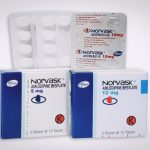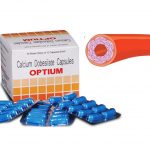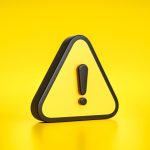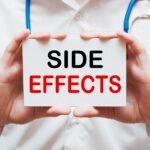Norvasc: Uses, Dosage, Side Effects, Contraindications
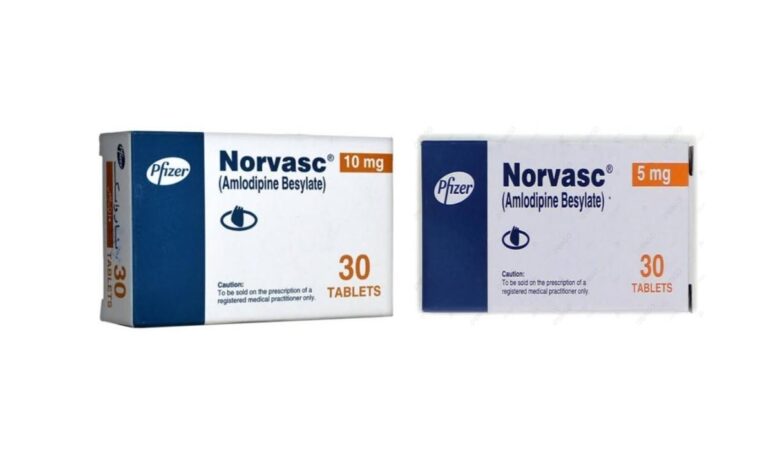
What is Norvasc?
Norvasc is a brand of amlodipine besylate produced by Pfizer. It is a prescription drug used solely or in combination with other medications to treat high blood pressure (hypertension) and a type of chest pain called angina.
How Norvasc works
Norvasc belongs to a class of medicines called calcium channel blockers (sometimes called calcium channel antagonists). It works by inhibiting the influx of calcium ions across cardiac (heart) and smooth muscle causing relaxation of these muscles and dilation (widening). The exact way amlodipine works in angina is not known; however, experts believe it helps prevent spasm of the coronary artery and reduces how hard the heart has to work to pump blood around the body, lowering its oxygen requirements. Norvasc does not change the levels of calcium in the blood.
High Blood Pressure (hypertension)
High blood pressure comes from blood pushing too hard against your blood vessels. Norvasc relaxes your blood vessels, which lets your blood flow more easily and helps lower your blood pressure. Drugs that lower blood pressure lower your risk of having a stroke or heart attack.
Angina
Angina is a pain or discomfort that keeps coming back when part of your heart does not get enough blood. Angina feels like a pressing or squeezing pain, usually in your chest under the breastbone. Sometimes you can feel it in your shoulders, arms, neck, jaws, or back. Norvasc can relieve this pain.
What are the side effects of Norvasc?
Like any medication, amlodipine has various known side effects depending on usage, although not everyone will experience them. Most side effects, however, are mild and wear off quickly.
Here are some of the common side effects of Norvasc.
- Dizziness
- Headache
- Constipation
- Nausea
- Flushing
- Palpitation
- Swollen ankles
- Fatigue
- Rash
However, some patients may develop serious side effects although such cases are infrequent.
- Severe stomach pain
- Yellowing of skin and eyes
- New or worsening chest pain
- Anaphylaxis to amlodipine though very rare
If you believe you are experiencing serious side effects, you should call or visit a doctor immediately.
Does Norvasc Cause Hair Loss?
Blood pressure medications such as beta-blockers and ACE inhibitors are known to cause hair loss.
Blood pressure medications promote hair loss in two main ways:
- By causing hair follicles to enter the resting phase and fall out before time.
- By inhibiting the normal activity of matrix cells.
- However, amlodipine has no known effect on hair growth or cause of hair loss.
How Norvasc should be taken?
Norvasc comes either as a 2.5mg, a 5 mg tablet, or a 10 mg tablet. The usual dosage for amlodipine is 5mg a day. However, depending on the severity of your illness, 5 mg may or may not be enough to treat you. In such an event, you should consult your doctor for an increase in dosage, drug combination, or medication change.
For children, the dosage is lower but may vary as well depending on the severity of illness and drug effectiveness. The usual dosage for children is either the 2.5mg tablet once a day or the 5 mg tablet a day depending on age.
The dosage for geriatric patients is also similar to that of children. However, in this case, amlodipine prescription is dependent more on age and strength of heart muscles.
What happens if I miss a dose of Norvasc?
Take the missed dose as soon as you remember. If you are more than 12 hours late, skip the missed dose. Do not take extra medicine to make up for the missed dose.
What happens if I overdose on Norvasc?
Seek emergency medical attention or call the Poison Help line at 1-800-222-1222. Overdose symptoms may include rapid heartbeats, redness or warmth in your arms or legs, or fainting.
What to avoid while taking Norvasc
Avoid getting up too fast from a sitting or lying position, or you may feel dizzy. Get up slowly and steady yourself to prevent a fall.
Can I take Norvasc with alcohol?
No, it is recommended that you do not mix Norvasc and alcohol. Alcohol raises blood pressure temporarily and these frequent rises can develop into a chronic case. Norvasc is an antihypertensive drug, which means its combination with alcohol negates the effect of amlodipine.
Doctors and pharmacists strongly advise against the consumption of alcohol before, during, and after taking amlodipine.
How Long Does It Take for Norvasc to Work?
Calcium chain blockers like Norvasc begin working 2 to 4 hours after intake of the first dose. This means, after taking Norvasc you should expect to experience the effect at least within 2 hours.
However, different foods and beverages, however, affect how Norvasc works. For this reason, it’s advisable to seek guidance from your doctor on the best diet while taking amlodipine.
Taking Norvasc at night greatly reduces blood pressure compared to taking it in the morning.
What other drugs will affect Norvasc?
Tell your doctor about all your current medicines and any you start or stop using, especially:
- nitroglycerin;
- simvastatin (Zocor, Simcor, Vytorin); or
- any other heart or blood pressure medications.
This list is not complete. Other drugs may interact with amlodipine, including prescription and over-the-counter medicines, vitamins, and herbal products. Not all possible interactions are listed in this medication guide.
Norvasc vs. Lisinopril
Although both Norvasc and Lisinopril are used to treat high blood pressure, they differ in their mode of action. While both medications aim to dilate blood vessels in the heart and stabilize blood flow and pressure, Norvasc is a calcium chain blocker and lisinopril is an ACE inhibitor.
In other words, Lisinopril works by inhibiting the action of the enzyme ACE (Angiotensin Converting Enzyme) in the kidneys, which slows the production of ACE II. Due to this, the blood vessels dilate and open thus lowering blood pressure.
Norvasc, on the other hand, inhibits the entry of calcium into heart muscle cells and arteries. The side effects for these medications generally differ, however they do share some similarities.
Is Norvasc a Beta blocker?
Norvasc is not a beta-blocker. Norvasc falls into a class of medications called calcium antagonists or calcium chain blockers. The name is derived from their mode of action in the body which is simply by blocking off calcium.
Contrastly, beta-blockers are a different type of blood pressure medication that works by blocking or countering the action of certain hormones. Hormones such as adrenaline are blocked from entering the heart muscles thus lowering stress to the heart.
How to get brand-name Norvasc?
How can I ensure that I won’t get switched to a generic substitute?
Here are 3 suggested tips to help make sure you receive brand-name Norvasc and not a generic:
- At your doctor’s office: Ask your doctor to prescribe brand-name Norvasc and to indicate “DAW” (Dispense As Written)—or the language used in your state—on all of your Norvasc prescriptions.
- At your pharmacy’s drop-off: Tell the pharmacist that you want brand-name Norvasc—and be sure to use the Norvasc Savings Card. The Norvasc Savings Card can only be used with brand-name Norvasc.
- At your pharmacy’s pick-up: Check your pills to be sure they’re brand-name Norvasc—not the generic—and also check that you’ve saved on your prescription.
What should I do if I receive a generic substitute instead of brand-name Norvasc?
Talk to your doctor and/or your pharmacist to ask if you should be getting the brand-name Norvasc.
Is Norvasc bad for my heart?
Amlodipine is not bad for your heart, and even for folks with heart failure, Norvasc is a reasonable option to lower your blood pressure.
Is Norvasc good if I have diabetes?
In a study done on hypertensive patients with type 2 diabetes, Norvasc (and thiazide diuretics) was more effective than any other antihypertensive drug class. Norvasc is in fact fine to use if you have diabetes.
Is Norvasc bad for my kidneys?
Norvasc is largely broken down in the liver (not the kidneys) and used by folks with kidney disease who do not need to adjust the dosage. So, Norvasc is not bad for your kidneys.
Does Norvasc increase my cancer risk?
Amlodipine made news a while back when a small study on breast cancer found a relationship between breast cancer and those who took Norvasc for more than 10 years. However, several larger studies have found that Norvasc does not increase your risk for cancer, regardless of how long you’ve been taking it.
Can I take Norvasc with my cholesterol medication?
Yes, in fact, amlodipine comes with a statin in the combination medication, amlodipine /atorvastatin. Amlodipine/atorvastatin is available as a generic and taken once daily, it reduces blood pressure and low-density lipoprotein (LDL) cholesterol levels. This works just as well as taking the two medicines separately. Also, people taking the combination pill tend to stick to their treatment longer compared to those taking two separate pills.
Norvasc Contraindications
You should not take Norvasc if you have any of the following conditions:
- Significantly low blood pressure
- Severe liver disease
- Severe narrowing of the aortic heart valve.

